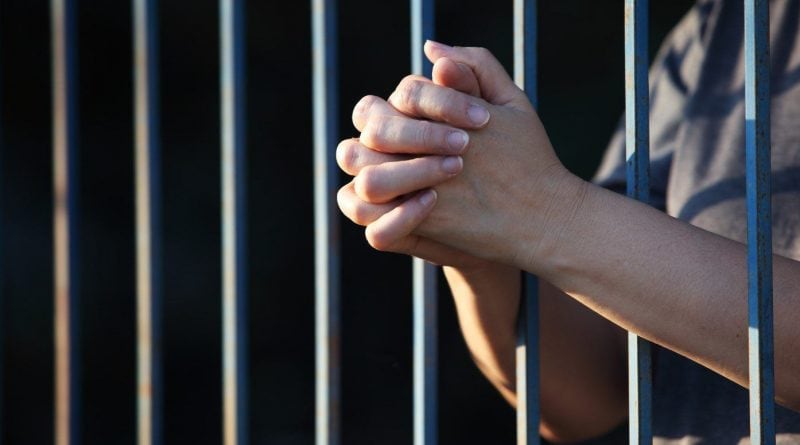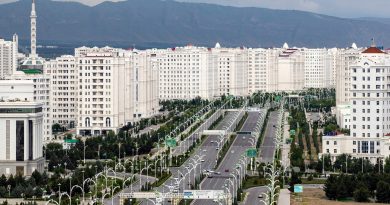Kyrgyzstan: Woman, convicted of possessing extremist material, files complaint with UN Committee on Women’s Rights
The public association “Human Rights Movement: Bir Duino-Kyrgyzstan” (One World – Kyrgyzstan) announced that it had filed a complaint with the UN Human Rights Committee to protect the rights of the Kyrgyz woman who was accused of possessing extremist materials.
It’s noted that the complaint was filed 4.5 years after the incident that occurred on October 9, 2017 in the village of Boston (Nookot district). Then two employees of the Department of the State Committee for National Security for the city of Osh and Osh region came with a document check to the house of the couple [Sh.A. (husband) and I.P. (wife)] living in this village. During the check, the employees demanded that the spouses give out their mobile phones.
According to human rights activists, the woman left the house to hide her cell phone in the yard. Meanwhile, her husband grabbed a kitchen knife, stabbed one of the employees, and then fled the scene. The next day, a criminal case was initiated against the man for using violence against a representative of the authorities, and 4 days later he was put on the wanted list. Sh.A. still hasn’t been found.
After the escape of the man, the law enforcement officers turned their attention to his wife, 52-year-old I.P. As human rights activists explain, at the end of October, the woman nevertheless gave her cell phone, about which the protocol on voluntary giving out was drawn up.
The contents of the phone were handed over to specialists for religious expertise.
“It’s noteworthy that the information materials were in Russian (the woman is Russian-speaking, she almost doesn’t speak Kyrgyz), but the examination was carried out by a Kyrgyz-speaking employee of the Southern Regional Department of the State Commission for Religious Affairs. At the same time, there are no translations of materials from Russian into Kyrgyz in the case for examination, there are no documents confirming the competence of the employee in Russian,” the human rights activists point out.
The expert opinion submitted in early November 2017 was in the Kyrgyz language. According to this document, some materials contain information related to the activities of ISIS, which activities are prohibited on the territory of the Kyrgyz Republic.
“As a result, on November 17, 2017, the woman was accused of possessing extremist materials. When the case was considered in the court of first instance in the district court in Nookot, her lawyer filed a petition for the court decision that specifically these information materials, found in the woman’s phone, were recognized by the court of the Kyrgyz Republic as extremist, as required by law. The judge ignored the petition,” One World reports.
He also ignored the second motion to dismiss the criminal case against I.P., due to the fact that she voluntarily gave out her phone to law enforcement officers. The judge substantiated his refusal by the fact that the woman allegedly handed over her phone to the police only after the initiation of a criminal case against her. However, according to the case file, I.P. handed over the phone to law enforcement officers on October 28, 2017, and charges were filed on November 17 based on the materials found in it.
On January 12, 2018, the District Court found the woman guilty of possessing extremist materials and sentenced her to 3 years in prison. The court took into account the presence of two minor children. She was taken into custody right in the courtroom, although at that time the verdict of the court of first instance hadn’t yet entered into force.
In mid-February 2018, the Regional Court of Osh (the court of second instance) upheld the decision of the District Court of Nookot. The arguments of the lawyer were not given any assessment. The woman continued to serve her term.
In mid-November 2018, the Supreme Court upheld the decision and verdict of the District Court of Nookot, the ruling and verdict of the Regional Court of Osh, and the lawyer’s supervisory appeal was dismissed.
“In January 2019, a new Criminal Code came into force, aimed at decriminalizing acts. According to that Code, the possession of extremist material is a criminal offense if there is a purpose for its distribution. This made it possible to go to court again. And on April 25, 2019, the Supreme Court granted the lawyers’ motion to dismiss the criminal case against the woman in connection with the decriminalization of the act. The case against I.P. was terminated,” the human rights activists say.
The woman was released 5 days later, on April 30, 2019, that is, I.P. was arbitrarily imprisoned, which is a violation of the rule according to which a person convicted of an act, the criminal liability of which has been eliminated by the law that has entered into force, is immediately released from the punishment.
The human rights organization believes that enough facts have accumulated over the past 3 years, indicating a violation of the rights of I.P. They were systematized and summarized for filing a complaint with the UN Committee.
“The complaint to the Committee refers to the provisions of four articles of the International Covenant on Civil and Political Rights: arbitrary and unlawful arrest and detention, the right to freedom of opinion, access to justice, and conviction for an act that at that time wasn’t a criminal offense under national or international law. The complaint says that it’s necessary to restore the violated human rights norms by canceling the criminal case of I.P. and her rehabilitation; compensate her for the damage caused by moral suffering; and also that the state prevents such violations of human rights,” One World specifies.
It should be noted that in 2020, the UN Committee on the Elimination of Discrimination against Women considered the complaint of a Kyrgyz woman, Roza Gorbaeva, who became the first woman in the Kyrgyz Republic to apply to this Committee with the support of human rights activists.
While the investigation and trials were going on, she spent more than three years in six different temporary detention centers in different cities, despite the fact that the law allows keeping suspects in temporary detention centers for only 48 hours.
The human rights organization “Justice”, which is part of the Coalition against Torture of Kyrgyzstan, noted that the detention of Gorbaeva in these temporary detention centers degraded her human dignity, was tantamount to cruel inhuman treatment and was of a discriminatory nature.
The UN Committee on the Elimination of Discrimination against Women, after considering the application of the Kyrgyz woman, recognized the fact of discrimination against her and demanded that the government of Kyrgyzstan provide appropriate compensation.
Based on this, Roza Gorbaeva appealed to the Pervomaiskiy District Court of Bishkek. The court partially satisfied the woman’s application and ruled to pay her $600 (50,000 KGS), although the claim was $122,000 (10 million KGS).




